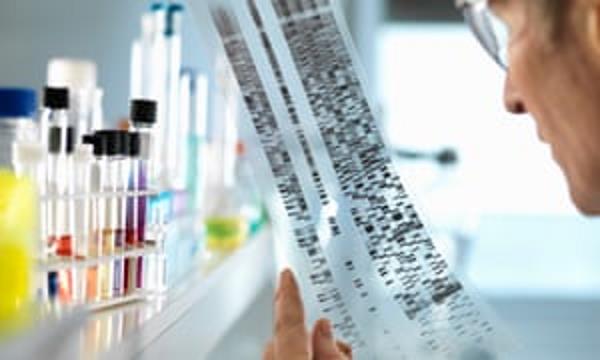An interesting story which begets many questions. Not least what counts as a "serious genetic condition"!
Please try to keep to non-political (especially, non-party-political) comments - though inevitably the story has several obviously political aspects to it.
NHS to sell DNA tests to healthy people in push to find new treatments
Service will be free for patients with serious genetic conditions as health service in England aims to recruit 5 million volunteers
Healthy people in England are to be given the option of paying to have their DNA analysed by the NHS in an attempt to advance understanding and uncover new medical treatments, the health secretary has said.
The announcement of the service, which will also be offered for free to people with serious conditions, comes less than two months after NHS researchers said they had reached their goal of sequencing 100,000 whole genomes during five years of work by the 100,000 Genomes project.
“Genomics has the potential to transform healthcare and I’m really proud that the UK is leading the world,” said the health secretary, Matthew Hancock, on Friday. He added that “seriously ill children and adults with genetic conditions, including cancer, will be offered DNA analysis as part of their routine care” from this year.
“And, while healthy people should not have this service free on the NHS, there are huge benefits to sequencing as many genomes as we can – every genome sequenced moves us a step closer to unlocking life-saving treatments.”
Hancock announced the launch of the “genomic volunteering” scheme, under which people – both those who pay and those getting it free – will be given the option of having their DNA analysed by NHS scientists in an attempt to predict the patient’s risk of developing various conditions. In return, the anonymised data must also be handed to researchers to help them develop treatments.
The plans were met with some scepticism from those who suggested the results may be misinterpreted and highlighted the sensitivity of the data.
Anneke Lucassen, the chairwoman of the British Society for Genetic Medicine, told the Times: “There is still a lot of misunderstanding of what whole-genome sequencing can deliver. There is a view that it will give you clear clinical predictions and, most of the time, it will not.”
Helen Stokes-Lampard, the chairwoman of the Royal College of GPs, also told the paper: “We are talking about very sensitive personal data that needs to be understood and used responsibly, and it raises a lot of ethical issues. A lot of things that will be picked up by genetic testing will be unimportant or of dubious value.”
It was reported that the tests would cost hundreds of pounds. The Department of Health and Social Care said on Friday night that the exact cost was still under consideration and, addressing whether or not such testing would create a two-tier public health system, officials said the scheme would be consistent with the NHS’s founding principle of being free at the point of use.
It was unclear whether people who take up the option will routinely be offered counselling to deal with the contents of the reports they receive and whether the NHS will be expected to deal with the extra workload with current staffing levels.
According to the Times, ministers hope to sequence 5m genomes over the next five years, a significant proportion from paying customers.
There has recently been a significant move towards offering more personalised medical treatments based on genomic research. On Friday, Jonathan Symonds, the incoming chair of Genomics England – which will help administer the new project – said the next phase of the body’s work, after the sequencing of the 100,000 genomes, would focus on delivering “genomics-based diagnostics in clinical care”.
And last year it was announced that the NHS would become the first health service in the world to routinely offer genomic medicine. The new regime, which began in October 2018, prioritises “precision medicine”, which NHS England says takes greater account of people’s genetic differences, rather than a “one-size-fits-all approach to the treatment and care of patients with a particular condition”.
